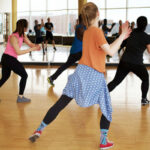We explain what thinking skills are, their function and how they are classified. Also, the characteristics of each skill.

What are thinking skills?
Thinking skills are the set of mental and psychic processes that allow the management, organization and processing of information. information. They are part of all cognitive processes, from the effective linking of what is received by the senses with the information stored in memory, to the improvisation of responses or explanations for the different situations that arise in everyday life.
Skills are the skills or abilities that a person has to solve a certain situation. For its part, thinking is an internal experience that allows functions such as classifying, analyzing, comparing, inferring and solving problems. It involves a general activity of cognitive processes (such as memory or attention).
Thinking skills can be learned and taught, and they improve through practice. Expanding these skills contributes to the development of meaningful learning.
Classification of thinking skills
The skills or thinking processes have different degrees of complexity and abstraction, which is why they can be classified into basic skills and higher skills.
Basic skills
The basic skills allow you to manipulate the information captured by the senses, organize it, transform it and direct the action towards an end. In addition, they support much more complex and demanding mental processes, such as creative and analytical thinking.
Basic processes usually happen automatically in everyday situations. For example, evaluating the weather to choose the right clothes.
The basic skills are:
- Observation It consists of examining, contemplating and focusing attention on certain objects or situations. It is associated with actions such as recording data and describing. Allows you to obtain information about the environment. For example, observe the body language of an interlocutor to know how they feel.
- Comparison It consists of the ability to relate two concrete or abstract references, to establish analogies or differences based on a criterion or variable. It involves operations such as generalizing and discriminating. For example, before making a purchase, compare different models and brands of the same product.
- Classification It consists of grouping objects, events or situations that are part of a set into differentiated classes. It can be established based on its properties, characteristics, qualities or other references. Classification is necessary to define concepts. For example, classify school supplies according to their function (writing, highlighting, drawing).
Basic thinking skills operate in all learning situations, whether consciously or unconsciously.
Higher skills
The superior skills are the mental processes that allow the management of information at levels of abstraction, correlation and creativity more complex and demanding.
Higher forms of thought are typical of more specialized reasoning systems, such as scientific, philosophical, logical, abstract-spatial thinking or artistic creativity. For example, formulate a hypothesis and conduct controlled experiments to test whether it is correct.
The main higher skills are:
- Analysis. It consists of breaking down a whole into its simplest elements. It allows us to understand the different components of the whole and establish relationships and correspondences. Carrying out an analysis involves classifying, issuing hypotheses and arguing. For example, searching for information and analyzing different variables to choose which career to study.
- Synthesis It consists of composing or constructing a totality. It is about drawing conclusions from the comparison and relationship of different elements. It involves integrating and combining ideas to generate something new. It is characterized by creation and allows developing multiple solutions for the same problem. For example, research a topic in different sources and make a summary.
- Assessment. It consists of substantiating, valuing or measuring a production, a material, an object or a phenomenon. It involves justifying the reason for a statement. For example, making a decision based on the information collected and analyzed.
Higher thinking skills strengthen metacognitive processes, which form a higher level in relation to the interpretation and processing of information, since they allow one to inspect one's own mental activities.
document.addEventListener(“DOMContentLoaded”, (e) => {
var sliderContainer, slider;
sliderContainer = document.getElementById(‘block_72f98bf84c3ad06d637675fde42b0c8e’);
if (typeof initSlider !== ‘function’) {
console.log(‘Swiper haven\’t been loaded’);
sliderContainer.className += ‘ fw scroll-snap’;
return;
};
options = {
direction: ‘horizontal’,
speed: 1000,
slidesPerView: ‘auto’,
// slidesPerGroup: 1,
centerInsufficientSlides: true,
// centeredSlides:true,
spaceBetween: 15,
breakpoints: {
720: {
// centeredSlides: false,
// slidesPerGroup: 2,
spaceBetween: 25
},
},
pagination: {
el: ‘.swiper-pagination’,
type: ‘bullets’,
clickable: true
},
}
slider = initSlider(sliderContainer, options);
})
References
- Báez Alcaíno, J and Onrubia Goñi, J. (2016). A review of three models for teaching thinking skills in the school setting. Educational Perspective, Teacher Training55(1), 94-113.
- Lugo, A., Torres, A and Martínez, R. (2020). Basic thinking skills as an epistemological preamble to the analytical processing of information in university scientific teaching. Knowledge, Science and Freedom Magazine,15(2), 251-265. https://revistas.unilibre.edu.co





